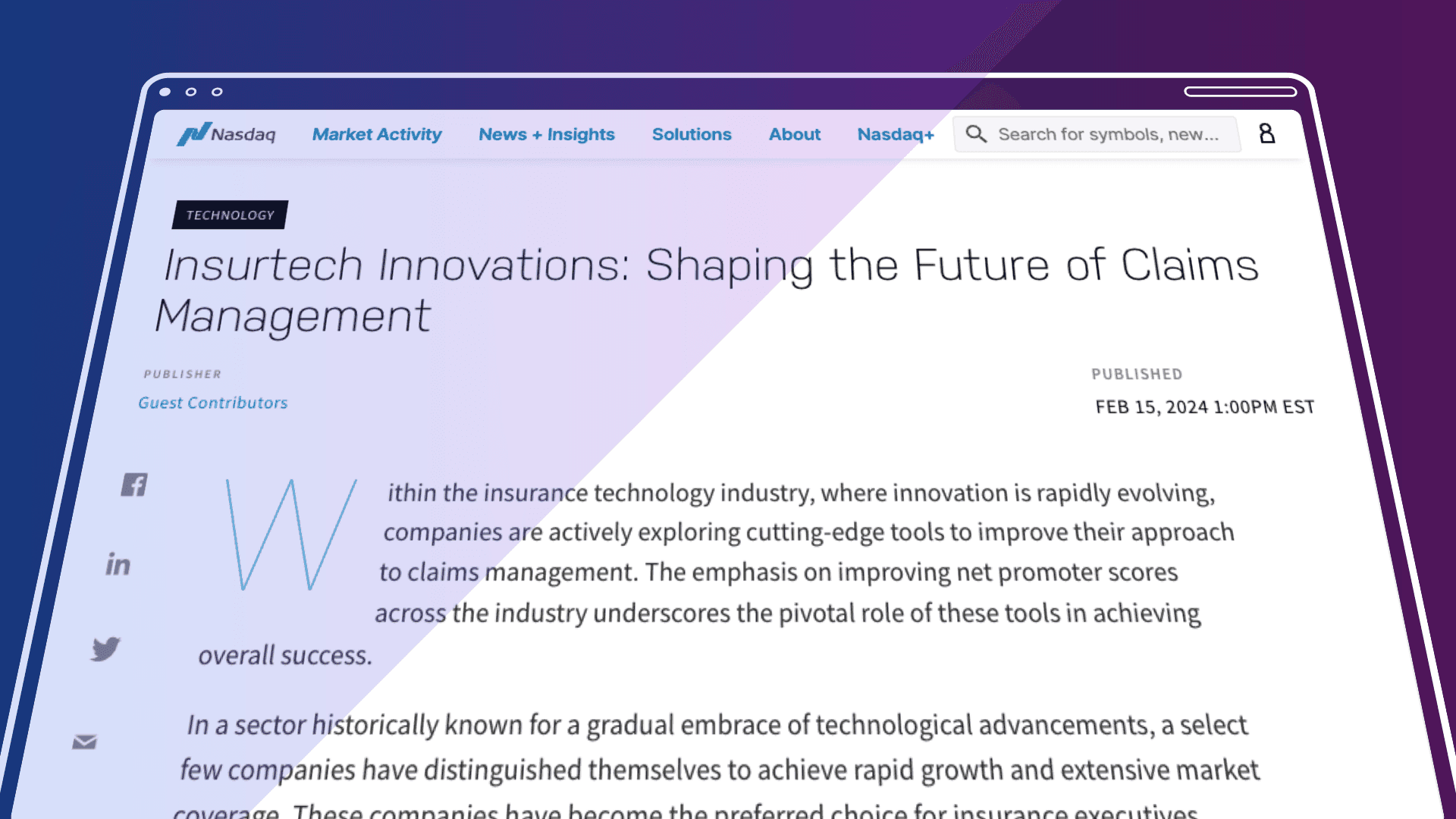
Owl.co Featured on Nasdaq
In today's rapidly evolving insurance technology industry, companies are actively seeking innovative tools to enhance their approach to claims management. As the industry places increasing emphasis on improving net promoter scores, the role of insurtech solutions in achieving overall success cannot be overstated. Nasdaq's article "Insurtech Innovations: Shaping the Future of Claims Management," dives into this. In this blog, we will highlight the key points covered in the article and discuss why it is a must-read for anyone interested in the future of claims management in the insurance sector.
The Power of Claims Intelligence Platforms:
The article explores how claims intelligence platforms powered by advanced technologies such as machine learning and artificial intelligence have become crucial for insurers to stay ahead of the competition. These platforms not only monitor internal claims documents but also analyze proprietary external data to provide actionable insights and information at the right time. By adopting these strategic approaches, insurers can effectively prioritize claims and reduce overall costs and durations.
Partnerships and Artificial Intelligence:
Another key aspect covered in the article is the growing interest among insurance executives in partnership models and artificial intelligence features. Collaborative networks, powered by constantly evolving AI, enable insurers to make informed decisions throughout the claims process. The article highlights the positive impact of partnerships with insurance claim monitoring platforms like Owl.co, which leverage AI and machine learning to help insurers manage claims efficiently and effectively. By optimizing claim payments and demonstrating a commitment to innovation, these platforms contribute to the advancement of industry practices and enhance both net profits and net promoter scores.
Addressing Industry Challenges:
The article also sheds light on how comprehensive insurtech tools actively address challenges that are inherent in the insurance industry. These tools streamline processes, reduce learning curves, and enhance overall efficiency by automating the review of internal claimant information, carrier policies, and proprietary external data. Moreover, they deploy AI and machine learning algorithms that eliminate biases in claims decisions, leading to fairer outcomes. By focusing on deterministic data points, these tools promote inclusivity and unbiased claims handling.
Conclusion:
As the insurance industry continues to embrace transformative innovations in claims management, staying informed about the latest developments is crucial for insurers, industry professionals, and anyone with an interest in this evolving landscape. The article "Insurtech Innovations: Shaping the Future of Claims Management" provides valuable insights into the power of claims intelligence platforms, the significance of partnerships and AI, and the challenges being addressed by insurtech tools.
To read the full article, please visit: Insurtech Innovations: Shaping the Future of Claims Management
